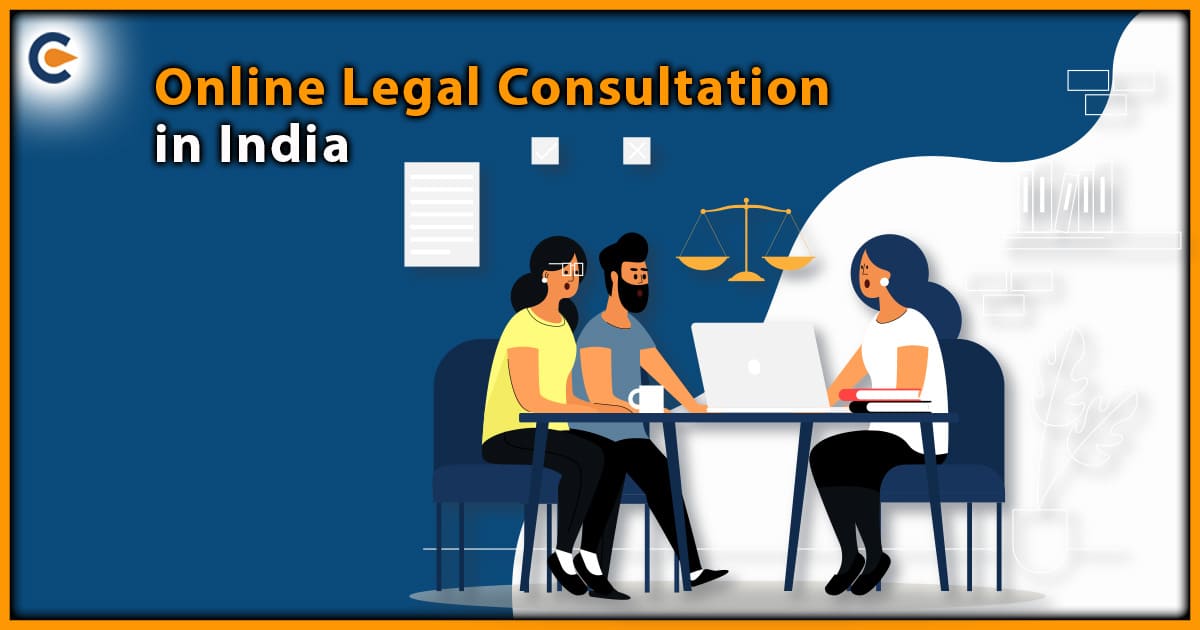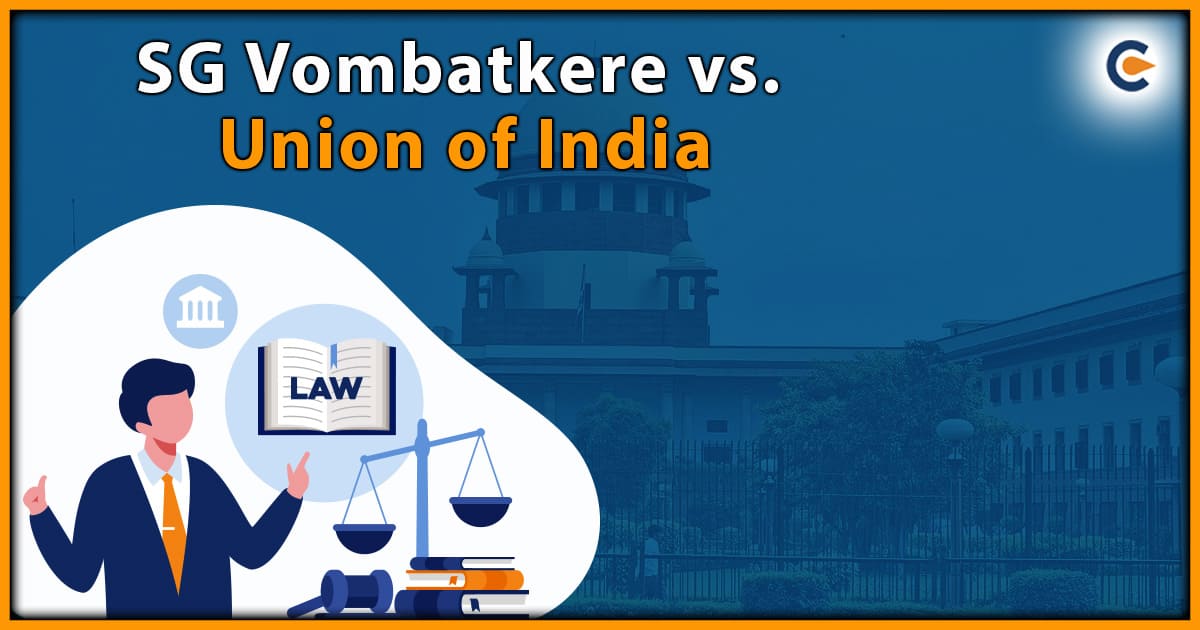Online legal consultation refers to providing legal advice and assistance through digital platforms, enabling individuals to seek professional legal guidance from the comfort of their homes or offices. This innovative approach has gained significant popularity in India, transforming the traditional landscape of legal consultations.
The convenience and accessibility offered by online legal consultation have made it an attractive option for individuals seeking legal assistance. By simply clicking a few times, individuals have the ability to engage with certified lawyers and legal professionals, removing the necessity of physically visiting law firms or courtrooms. This accessibility is particularly beneficial for those residing in remote areas or facing mobility constraints.
One of the critical advantages of online legal consultation is the significant time and cost savings it provides. Traditional in-person consultations often involve travel expenses and time-consuming appointments, whereas online platforms allow users to schedule consultations at their convenience, often with flexible timings. Moreover, clients can save on commuting time and expenses, making legal assistance more affordable and efficient.
Another remarkable aspect of online legal consultations is the opportunity it offers to connect with an extensive range of legal professionals, irrespective of geographical constraints. Clients are no longer limited to choosing from the lawyers available in their local vicinity; they can access a broader pool of legal experts from different regions or even internationally. This expanded reach enables individuals to find lawyers who specialize in their specific legal matters, ensuring tailored and knowledgeable advice.
The Significance and Growth of Online Legal Consultation in India
Online legal consultation refers to providing legal advice and assistance through digital platforms, allowing individuals to seek professional guidance remotely without needing in-person meetings. It holds significant importance in today’s digital era, as it offers several benefits, such as convenience, accessibility, cost-effectiveness, and a more comprehensive range of legal expertise. By leveraging technology, online legal consultation has made legal services more accessible to a larger population, breaking geographical barriers and enabling individuals to seek timely and expert legal advice from the comfort of their own homes or offices. This mode of consultation has transformed the traditional legal landscape by providing a flexible and efficient alternative to traditional in-person consultations, revolutionizing the way legal services are accessed and delivered.
The adoption of online legal consultation in India was further expedited by the COVID-19 pandemic. Lockdowns and social distancing measures necessitated the shift to remote communication, prompting individuals to turn to digital platforms for legal advice and assistance. This led to an increased acceptance and usage of online legal consultation services across the country.
The Indian legal system recognizes the validity of online legal consultation, and the Bar Council of India[1] has permitted lawyers to provide legal services through electronic means. However, lawyers and platforms need to adhere to regulatory guidelines and ethical standards to ensure the credibility and reliability of online legal services.
The status and acceptance of online legal consultation may have evolved since my last update. For a comprehensive and accurate understanding of the current status of online legal consultation in India, it is recommended to stay informed about the latest developments and regulations in the field.
Benefits of Online Legal Consultation
- Convenience and Accessibility for Clients: Online legal consultation provides unparalleled convenience to clients. They can access legal advice and assistance from anywhere, anytime, as long as they have an internet connection. It eliminates the need for physical travel to law firms or courtrooms, saving valuable time and effort. Clients can schedule consultations at their convenience, even outside traditional office hours, accommodating their busy schedules.
- Time and Cost Savings: Online legal consultation offers significant time and cost savings compared to traditional in-person consultations. Clients no longer need to commute to appointments or wait in queues. They can easily connect with legal professionals through digital platforms, reducing time spent on administrative tasks. Additionally, online consultations often come at a lower cost compared to in-person meetings, as there are no overhead expenses associated with physical office spaces.
- More comprehensive Access to Legal Experts: One of the notable advantages of online legal consultation is the ability to connect with legal experts beyond geographical boundaries. Clients have access to a broader pool of lawyers and legal professionals, including specialists in niche areas. They can seek advice from renowned experts irrespective of their physical location, breaking down barriers that may have previously limited their options.
- Enhanced Privacy and Confidentiality Measures: Online legal consultation platforms prioritize privacy and confidentiality. Reputable platforms employ robust security measures to protect client information, ensuring that attorney-client privilege is maintained. Communication channels are encrypted, and platforms often have strict data protection policies in place. Clients can have confidence in the privacy and security of their discussions, fostering an environment conducive to open and honest communication.
Considerations for Choosing a Legal Advice Portal in India
The legal landscape in India has witnessed a significant shift with the advent of online legal advice portals. Unlike traditional times, individuals now have access to numerous platforms that offer legal guidance and services online. These portals are often equipped with advanced technological tools and cater to a wide range of legal needs.
Setting up a new business involves company registration and tax compliance. Hiring a business attorney can simplify the process. Online legal advice portals offer cost-effective options for registering your company and obtaining tax-related services. These platforms also provide access to business lawyers and tax professionals who can efficiently address legal and business issues.
One notable advantage of these portals is the availability of free legal advice for Indians. While such services can provide a demonstration of the expertise and assistance offered, it is essential to note that attending court hearings or receiving comprehensive legal representation typically incurs fees.
The convenience offered by online legal advice portals is remarkable. Gone are the days of waiting for hours in a lawyer’s chamber for a physical meeting. Individuals can instantly consult lawyers and legal advisors online, discussing their legal issues without geographical constraints.
However, it is essential to consider potential challenges when opting for such portals. Confidentiality becomes a concern when discussing sensitive legal matters online. There is a risk of information visibility if one seeks free legal advice on open forums. Additionally, cybercriminals may target these portals, potentially compromising user data. To mitigate these risks, it is crucial to choose a secure and reputable legal advice portal for Indians. Checking the platform’s privacy policy and opting for paid services that ensure confidentiality can help safeguard personal information.
- Brand and Reputation: When choosing a legal advice portal in India, opting for a platform that showcases experienced and reputable lawyers is crucial. Look for portals with a strong track record, positive user reviews, and a history of providing reliable, high-quality services. This ensures that you can trust the expertise and professionalism of the lawyers available on the portal.
- Ease of Navigation: It is essential to select a legal advice portal that is user-friendly and easy to navigate. Avoid portals with complex layouts or confusing interfaces where finding relevant information or locating lawyers is challenging. Look for platforms with a simple and intuitive design, allowing you to browse and search for lawyers based on their specializations quickly. Ideally, the portal should display lawyers prominently on the first page, making it convenient for you to connect with them.
- Practical Legal Advice: While some free legal portals may raise concerns about the quality of their services, some reputable portals in India offer practical legal advice from top-notch lawyers at no cost. These portals typically provide an initial consultation without any fees, allowing you to discuss your legal concerns and receive valuable guidance. If you decide to proceed with hiring a lawyer through the portal, there may be associated legal fees. Therefore, choose a portal that strikes a balance between offering free initial consultations and providing transparent information about the subsequent legal costs.
- Specializations: Recognize the importance of selecting a legal advice portal that caters to various specializations and domains. Different legal matters require specific expertise, just like medical professionals specialize in different areas. Ensure that the portal you choose offers diverse lawyers with specializations in different fields, such as family law, corporate law, intellectual property, criminal law, etc. This ensures that you can connect with a lawyer with relevant knowledge and experience in your legal area.
Online legal consultation has gained popularity in recent years due to its convenience and accessibility. It allows individuals to seek legal advice and assistance from qualified professionals without the need for in-person meetings. Here is a step-by-step process for availing of online legal consultation, along with information on registration, profile creation, payment procedures, modes of communication, and document sharing:
- Registration: The first step in accessing online legal consultation is to register on the platform or website of the chosen legal service provider. This typically involves providing basic personal information, such as name, email address, and contact details. Some platforms may require additional information for verification purposes.
- Profile Creation: Once registered, users are usually required to create a profile. This involves providing additional details such as the type of legal assistance needed, preferred areas of law, and any specific case details. This information helps match the user with suitable legal professionals.
- Payment Procedures: Online legal consultation services usually require payment for their services. Payment methods can vary but commonly include credit card payments, online payment gateways, or other secure payment options. The platform may have different pricing models, such as per-minute charges, fixed fees for specific services, or subscription plans for ongoing legal support.
- Selecting an Attorney: After completing the profile, users are often presented with a list of available attorneys or legal professionals specializing in the relevant law area. Users can review these professionals’ profiles, qualifications, experience, and ratings to make an informed decision. Some platforms also provide user reviews and ratings to assist in the selection process.
- Modes of Communication: Online legal consultations typically offer multiple modes of communication to cater to different preferences and needs.
These can include:- a. Video Calls: Platforms may provide video conferencing capabilities that allow users to have face-to-face consultations with their chosen attorney. This mode closely simulates an in-person meeting, enabling both parties to communicate effectively and exchange information.
- b. Chat: Live chat features allow users to communicate with legal professionals through text-based messaging. This mode can be convenient for quick queries, clarifications, or document sharing.
- c. Email: Some platforms facilitate communication via email. Users can send detailed queries or share documents securely, allowing attorneys to review and provide advice at their convenience.
- Document Sharing: To facilitate the exchange of necessary documents and evidence, online legal consultation platforms often provide secure document-sharing features. Users can directly upload relevant files, such as contracts, agreements, or legal notices, to the platform. Attorneys can then access and review these documents to provide accurate advice and guidance.
- Consultation and Advice: Users can schedule a consultation with the selected attorney once the communication mode is chosen. During the consultation, users can discuss their legal concerns, seek advice, and receive guidance on the best course of action. Attorneys may ask questions to gather additional information and provide personalized legal advice based on specific circumstances.
- Follow-up and Ongoing Support: Online legal consultation services may offer follow-up sessions or ongoing support options to address any further queries or legal issues that arise. This ensures that users can continue to seek guidance and advice from their chosen attorney as needed.
Conclusion
Legal advice websites are gradually becoming integrated into our daily lives. These websites offer a new method of delivering legal services, with some already gaining recognition and others in the process of doing so. It is not a question of whether a physical approach is superior to virtual advice, as both can complement each other, leading to improved delivery of justice within a shorter timeframe. The prevailing belief is that technology remains relevant as long as it enhances efficiency, transparency, and objectivity in public governance, all of which are crucial for establishing the rule of law in a nation. Consequently, websites that focus on providing free legal assistance ultimately strive to ensure broader access to justice for the general public.
Read Our Article: Legal Grounds For Challenging A Will In A Court Of Law











